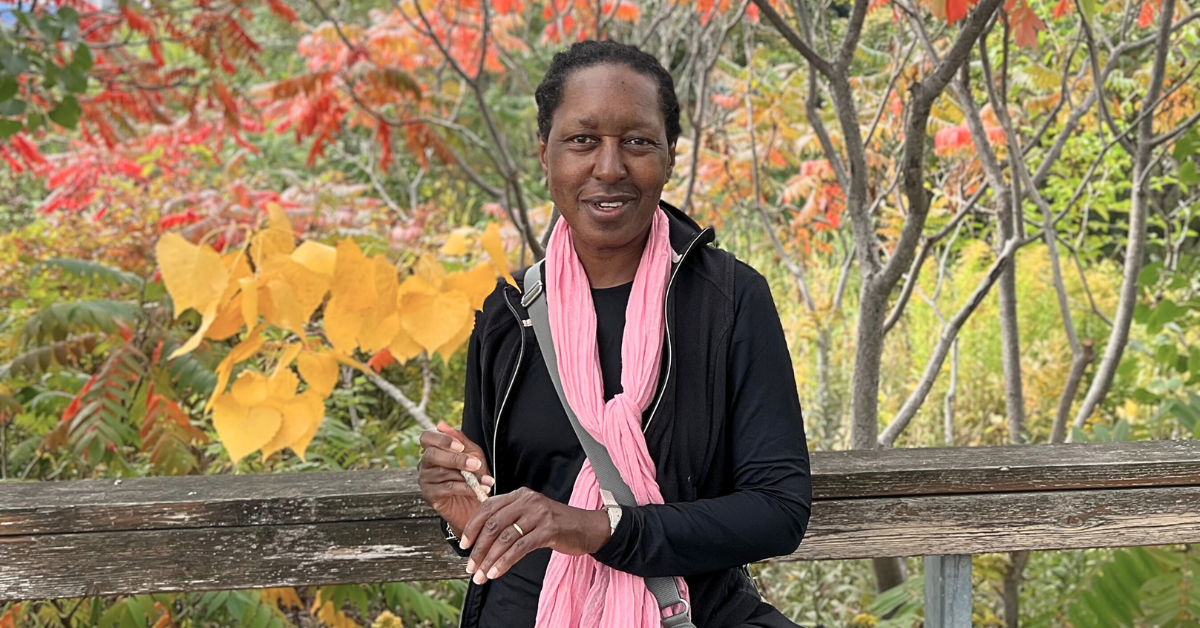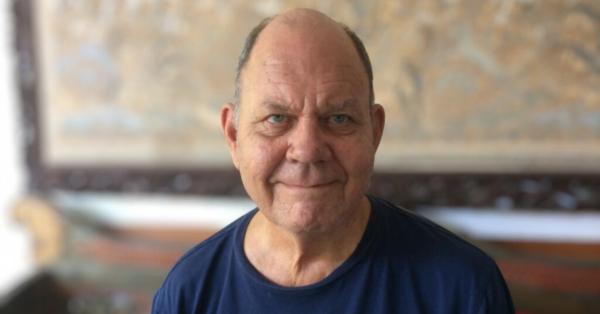
By Tova Green
Practice Periods (in Japanese, ango, or “peaceful dwelling”) provide an opportunity for beginners as well as more experienced Zen practitioners to join together for an extended period of time to meditate, study, and renew an intention to bring Zen practice into our daily lives. City Center offers several ways to participate in Practice Periods: as commuters, online, or as residents.
But what is a Practice Period actually like? How can the intensive practice experience be integrated with one’s day-to-day life? As we begin City Center’s Fall 2024 Practice Period, we present a series focusing on the experiences of various kinds of Practice Period participants.
We begin with students who recently participated in practice periods as commuters (living at home and coming to City Center) or online for zazen, classes, small group meetings, and Dharma talks. Stay tuned for more profiles in the coming weeks!
Valerie Harris’ path to Zen began when she was in school at San Jose State. Her friend who had started coming to City Center lent Valerie a copy of [Suzuki Roshi’s] Zen Mind, Beginner’s Mind. “I’d come to visit her in the city on weekends and attended the Saturday morning program at City Center. Eventually I moved to San Francisco and into the SFZC neighborhood, where I lived for 10 years.”
Although Valerie began practicing at City Center forty-four years ago, she only recently participated in her first two practice periods.
“With retirement came a desire to be more engaged bodily at City Center,” she related. Her first practice period, in fall 2023, was led by Senior Dharma Teacher Paul Haller. “I appreciated Paul’s encouragement and guidelines: Sit in the morning and the evening; sit in robes, or have specific clothes to sit in at home.”
Valerie participated in the practice period both in person and online. She attended classes and listened to Dharma talks online, and came to City Center for the one-day sittings and Friday zazenkai (half-day sits) led by Paul. Valerie appreciated how the online option allowed her to practice with people from other parts of the U.S. and beyond.
“During the practice period, which was on the paramitas, many things came up unexpectedly. I could look at a situation from different angles. The paramitas of generosity, patience, and energy were especially helpful—I can always use more patience. Generosity includes generosity to oneself and to other people. I learned to be more generous with people I don’t agree with, and with myself.”
Valerie also participated in the Spring 2024 Practice Period led by City Center Abiding Abbot Mako Voelkel. “I liked the topic of the precepts. I had already received lay ordination and was familiar with the precepts, and studying them again, I saw how they overlap and intertwine. I especially worked with ‘Not praising self at the expense of others.’ [In the past], I have tended to think I was right. I sometimes would believe that my way of thinking was more insightful. Looking through the lens of that precept was eye-opening; [I learned that this is an] attitude that leads to separation from others.”
During her second practice period, Valerie was invited by the Tanto (head of practice) to give a way-seeking mind talk. “I was nervous, and felt emotional when I was bowing at the altar before the talk. It made me think about how important San Francisco Zen Center has been to me. People were kind, receptive,and supportive.”
Valerie met her husband at City Center, where he was a resident. They were married by Zenkei Blanche Hartman, who was Valerie’s teacher. She received the precepts and the Dharma name Seki Shin Zen Nin (Sincere Heart Total Kindness) from Blanche Hartman in 2013.
“Finding Buddhism has been so central to my life. I’m grateful to be living in a time and place where I can learn about different forms of Buddhism and practice. Zen practice works so well for me. It’s comforting that there is more to learn and it’s a continuation of what I’ve been learning all along.”











